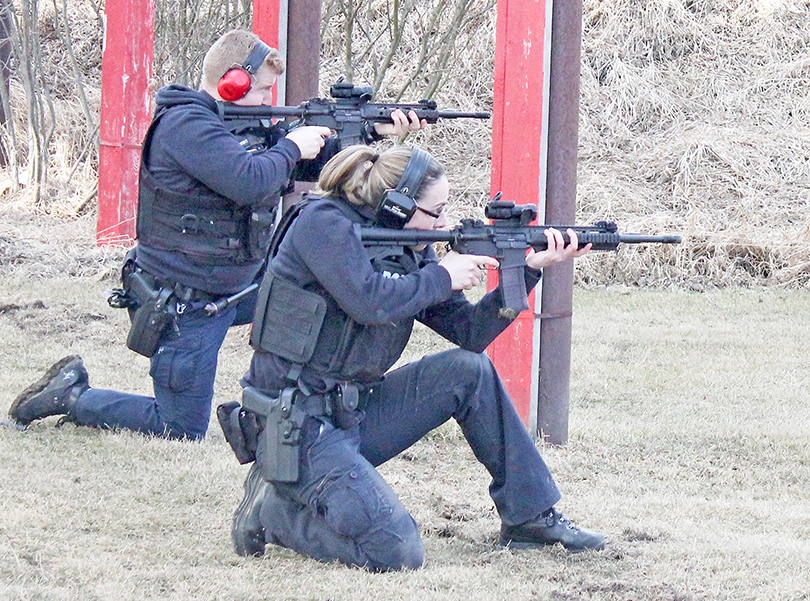
Being prepared
Policing in today’s world strikes a balance between building and maintaining strong community partnerships all the while upholding the law and ensuring public safety through prevention, detection, investigation and emergency response.
In order to ensure that police officers are properly trained and prepared for any emergent and sometimes dangerous situations, they receive the highest standards of training, including firearms certification.
“All sworn members of the service are required to qualify on their service pistol each year, in standards set by the Province,” noted CPS Officer Safety, Sergeant Todd Steil.
“Most sworn members of the police service are also trained and certified on the Carbine rifle (Colt C8) as well, as many situations require the presence of a firearm that is both more accurate and has a longer range than a pistol.”
Over and above the qualification and certification on firearms, members receive yearly training to hone their skills. “The training often consists of a mix of classroom instruction, training exercises and scenario-based training allowing officers to apply their skills in as close to real life situations as possible.”
Members also receive yearly training and certification on other important intermediate weapons such as: baton, handcuffing, OC Spray (pepper spray) and Conducted Energy Weapon (CEW or Taser).
“It is very important that our members receive top level use of force training. Our members use force on a very small proportion of calls and interactions with people (only 8.6 per cent of people arrested in 2023 required any type of force). However, when force is required, proper training ensures that the force used by members is reasonable and proportionate to what is required,” explained Steil, adding that in 2023, CPS experienced a trend in calls requiring the use of force. “In 2023, police saw a 38 per cent increase from the previous year in officer use of force, which also represents a 10 per cent increase from the five-year average.”
While the use of force is a necessary part of all police officers’ training, Steil said that a very important aspect of that training is the use of de-escalation techniques and methods of how to avoid the use of force, if at all possible, without jeopardizing public or officer safety. “Often the relationships built by members within the community can be leveraged in critical situations, avoiding the need for force. That being said, the reality of policing still requires force use, and our members are very well trained and ready when the need arises.”
In any event, having officers with the highest levels of training is reassurance that public and officer safety is of the utmost importance to Camrose Police Service.
